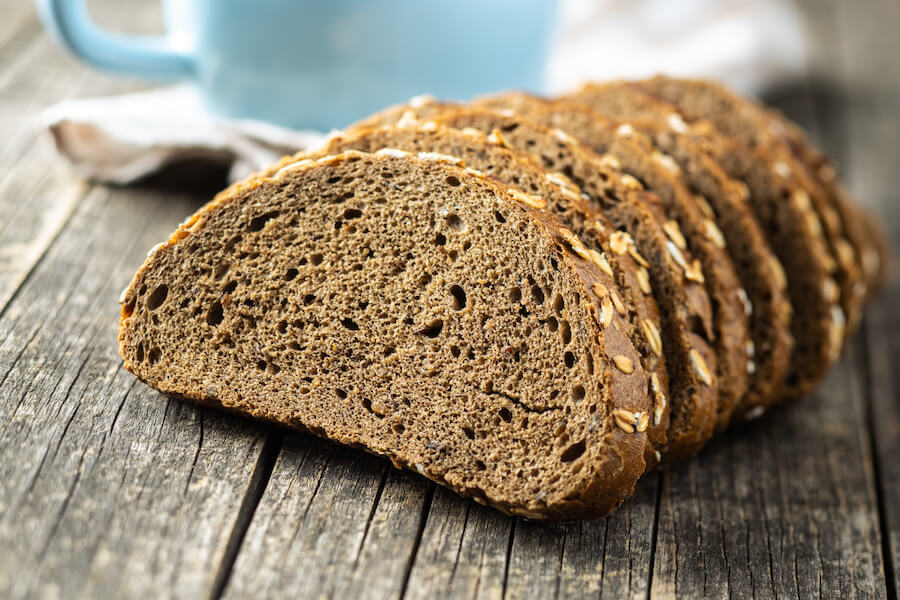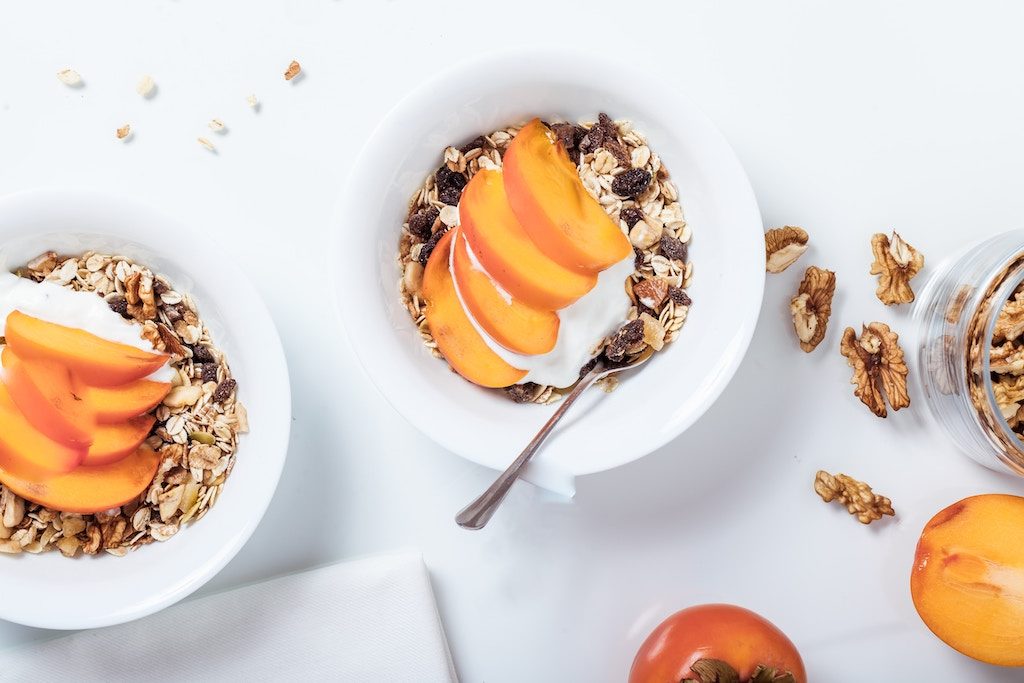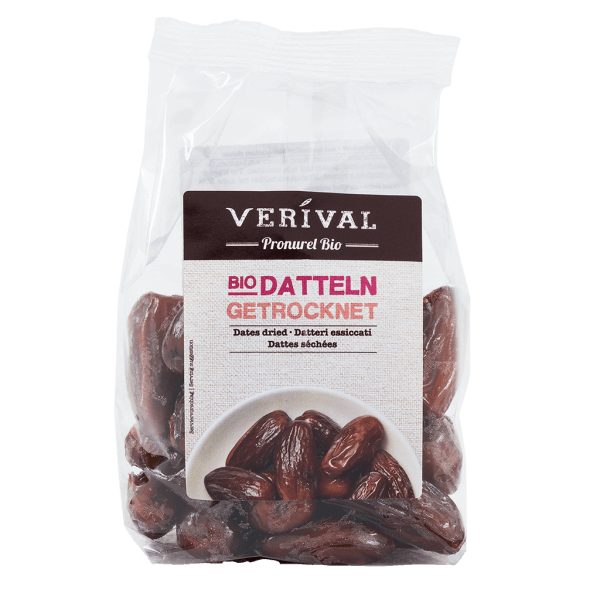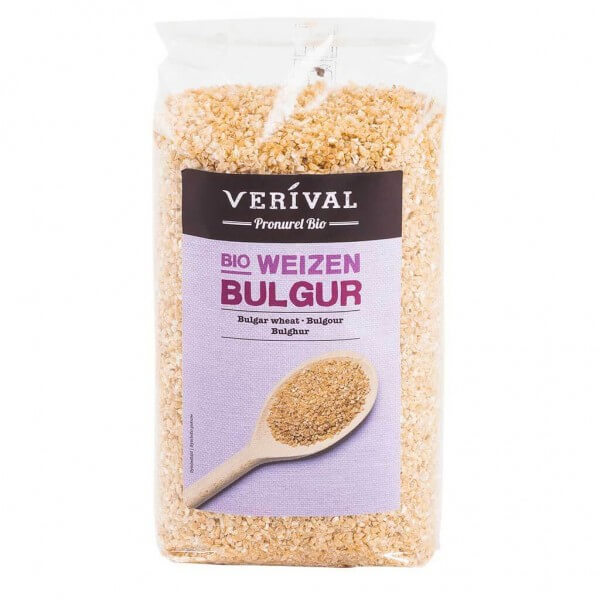Daily carbohydrate requirement – how much am I allowed to eat?
February 24, 2020- Gesund leben
- Healthy lifestyle
- Nutrition

Carbohydrates are an important energy supplier for our body. Nevertheless, in various diets they are considered as supposed fatteners. Whether or not you can eat them without hesitation is mainly dependent on the type of carbohydrates with which you cover your daily requirements. While some serve as an energy supplier for vital body functions and can even help you lose weight, others mainly make your blood sugar level go crazy. The consequences are ravenous hunger attacks.
So that you start the day with lots of energy, our mueslis are based on wholemeal carbohydrates that keep you full for a long time.
What carbohydrates are, how many your body needs and which of them are good for you, you will learn now.
Übersicht
What are carbohydrates?
Carbohydrates, along with fat and protein, are among the basic building blocks (or macronutrients) of our food. Carbohydrates and fats are considered the most important sources of energy. By the way, we use most of the energy we consume through carbohydrates for basic bodily functions. These include breathing, heartbeat, brain activity or the regulation of body temperature.
However, not all carbohydrates are the same. They are divided into three different groups:
- Monosaccharides: These include, for example, dextrose (glucose) and fruit sugar (fructose). As these are carbohydrates in their smallest possible form, they are no longer broken down during digestion. They therefore enter the bloodstream most quickly.
- Disaccharides: Dual sugars or household sugars are for example malt sugar, milk sugar or crystal sugar. They are soluble in water and are mainly found in sweets. These foods hardly provide any vitamins or minerals. Instead, they are pure energy sources and cause the blood sugar level to rise rapidly.
- Polysaccharides: They are mainly found in grains, potatoes, vegetables and legumes in the form of starch, and are also often referred to as complex carbohydrates. In contrast to disaccharides, they have a neutral taste and are hardly or not at all soluble in water.
How many carbohydrates do I need?
According to the Austrian Society for Nutrition, the daily carbohydrate requirement is 50% of your energy intake. For women this is about 240 grams, for men the daily requirement is 300 grams of carbohydrates. In addition, it is recommended that about 30% of your food intake is fat and about 20% should be protein.
It is best to cover your daily carbohydrate requirements with complex carbohydrates. Why are they the better choice? This can be explained with simple chemistry: In the digestive process carbohydrates are broken down into individual sugar molecules. The more sugar molecules join together, the more complex the carbohydrates are. Consequently, it takes longer to break them down into their individual building blocks again. This is why polysaccharides are slowly released into the blood and the blood sugar level rises only slowly too. This means that you stay full and are provided with energy longer. In addition, your performance does not drop suddenly.
On the other hand, the digestive process is faster with refined carbohydrates (monosaccharides and disaccharides). As a result, your blood sugar level rises and falls faster, and you quickly feel hungry again. You may also feel like having sweets and the notorious ravenous hunger attack may strike.

Glycemic index – what is that?
You may have heard the term glycemic index in connection with carbohydrates. In short, it measures how foods containing carbohydrates affect blood sugar levels.
For example, foods from the group of monosaccharides and disaccharides have a high glycemic index. They therefore have a strong effect on your blood sugar level. In contrast, foods from the group of polysaccharides have a low glycemic index. This means that they do not cause your blood sugar level to rise and fall as quickly.
Less carbohydrates: Is a low-carb diet useful for losing weight?
In theory, we don’t need any carbohydrates at all to survive. Because when the carbohydrate store is empty, our body falls back on the fat store. It can also convert protein into glucose, i.e. into individual sugar molecules, and thus produce carbohydrates itself. This means that low-carb diets can actually work. The important thing is that you are comfortable with it.
However, a low-carb diet is not recommended as a long-term form of nutrition because extreme diets are difficult to keep up. This may lead to short-term success, but in the long term it is easy to fall back into old patterns. Instead, try step by step to eliminate bad carbohydrates from your diet and replace them with good ones. This way you will feel good in your body in the long run and you don’t even need a diet.
Good vs. bad carbohydrates
To ensure that your body is optimally supplied with energy and can perform at its best every day, the majority of your daily requirement should be covered with good carbohydrates. Therefore, we have collected some foods for you in the following table, which you can often integrate into your diet. You will also find carbohydrates that you should avoid as much as possible:
| Very good carbohydrates | Good carbohydrates | Bad carbohydrates |
| Muesli (sugar-free) & oatmeal | Wheat wholemeal bread | White bread, rolls & buns |
| Whole-grain bread | Wholegrain rice and basmati rice | Long grain rice |
| Whole-grain pasta | Pasta | Powered mashed potatoes |
| Bulgur | Cous cous, Millet | Fries |
| Pulses (lentils, chickpeas, peas) | Potatoes, Sweet potatoes | Sweetened cereal |
| Milk/Soy milk | Fruit yoghurt | Gummy bears |
| Salads and vegetables | Dried fruit | Soft drinks like lemondade or iced tea |
| Fruit such as apples, pears, berries, oranges, kiwi, grapes, apricots | Fruit such as bananas, pineapples, mangoes, melons | Candy bars |
| Crispbread | Corn and rice waffles | Dextrose |
| Nuts and seeds | Apple and orange juice | Ice cream |
The aim should therefore be to cover the majority of your daily requirement with very good carbohydrates. Finally, the higher saturation value of complex carbohydrates prevents excessive energy intake. In short, you automatically eat less and can therefore maintain or reach a healthy body weight more easily.
Our tips for more good carbohydrates
As a delicious breakfast full of good carbohydrates we recommend our high variety of mueslis and porridges. Add fresh fruit and a little milk or soy drink and you’ll start your day with a good energy kick. This will not only boost your brain performance but will also keep you full for a long time.

For lunch and dinner you can try pasta dishes with whole-grain pasta, fresh bulgur salad with crunchy vegetables of your choice or our organic pumpkin and tomato porridge.
And if you want to renounce bad carbohydrates but not without sweet snacks, our healthy coconut-apricot energy bites are just the right thing for you.
- #carbohydrates
- #good carbohydrates
- #low carb
- #Muesli
- #müsli
- #Porridge
- #Verival
















